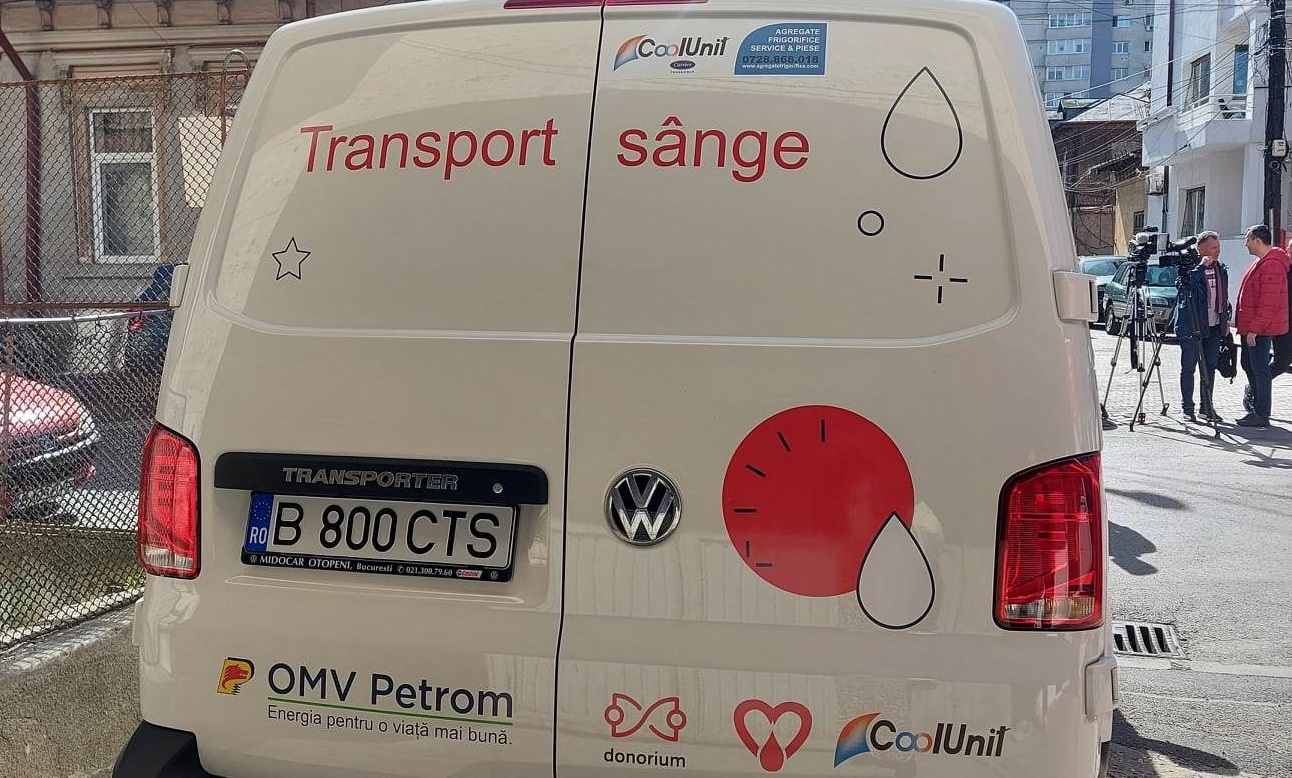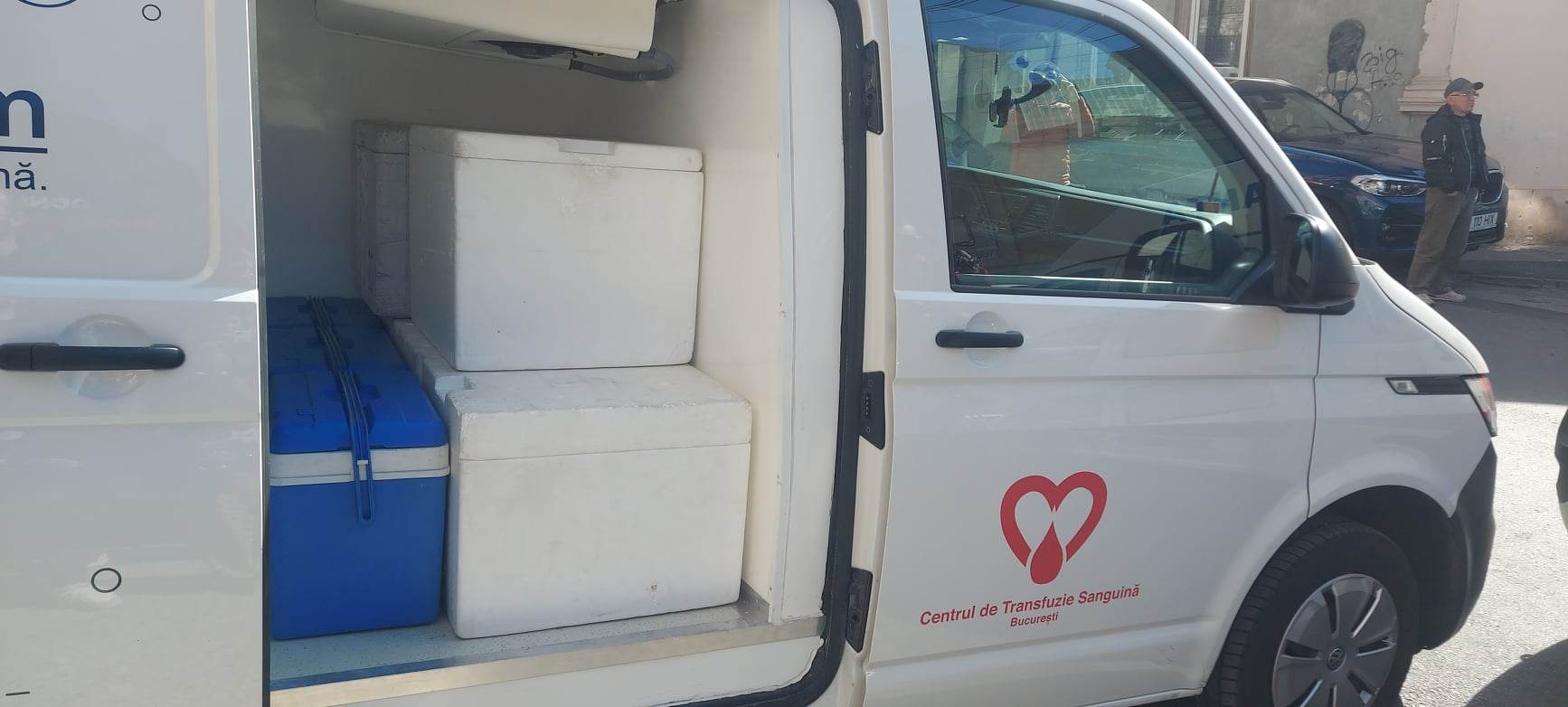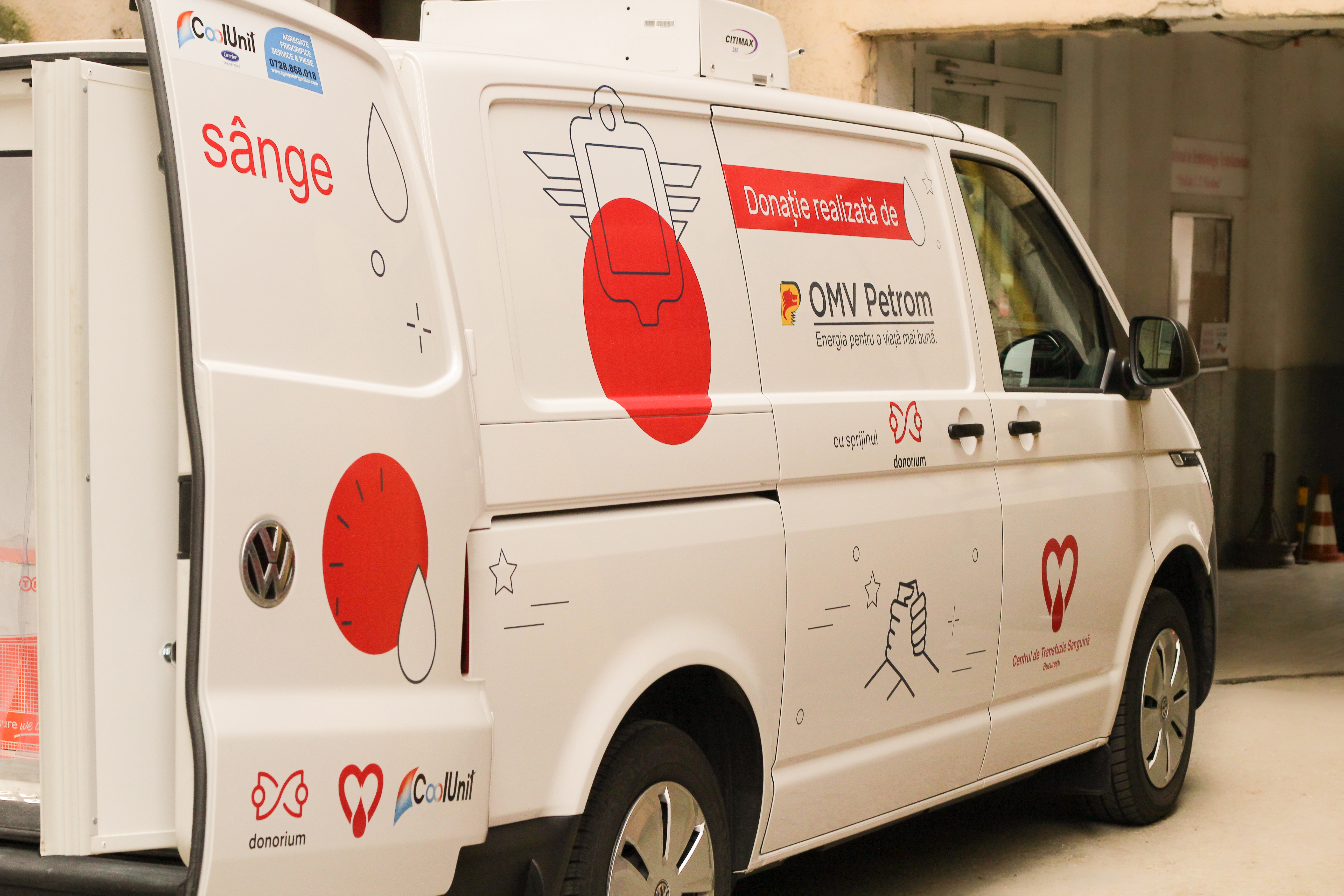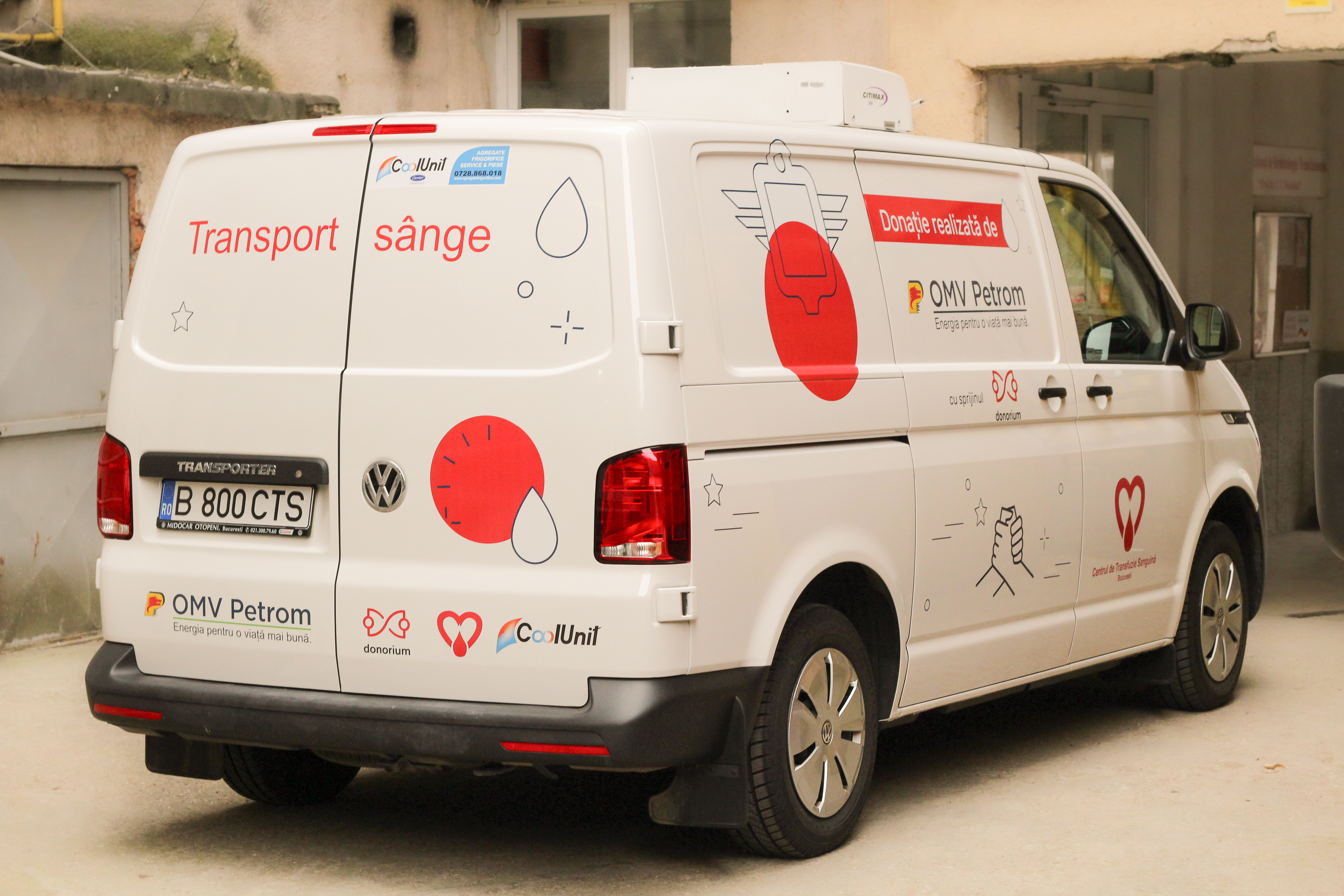
Every minute someone’s mother, father or partner needs a blood transfusion. In the summer, the number of donors drops sharply due to vacation. Romania occupies one of the last places in Europe in terms of blood donation, and Austria – the first. Increasing the number of blood donors in Romania, as well as reducing the waiting time for critically ill patients in the country’s hospitals, are the main advantages of the latest project of the Donorium Association and the Bucharest Blood Transfusion Center – the Mobile Blood Transport Unit (UMTS), a specially equipped vehicle that can move, for upon request, anywhere in Romania to help collect blood and transport it to blood transfusion centers or where there is a serious emergency or urgent need for blood. Specifically, the machine moves wherever there is a need for blood taken from transfusion centers within the supply.
“The mobile blood transport unit (UMTS) is the first for Romania. The car will give us the opportunity to be much more mobile, to transport blood where it is needed, in safe conditions. All this will contribute to increasing the number of blood donors in Romania, as well as reducing the time of transportation to hospitals in emergency situations. We hope that in a year we will increase the number of donors by about 10% compared to how many there are now.” says Dr. Doina Gosha, head of the Bucharest Blood Transfusion Center.
Many patients are waiting for the purchase of the necessary blood in hospitals. All of this is aimed at making the transfusion system more efficient and redistributing blood where it is needed. It is not enough to go and donate only once, because the need for blood is constant, so Romania needs donors all the time, says Dragos Mutascu, president of Donorium.

Mobile blood transport unit
A mobile blood transport unit was donated to the Blood Transfusion Center in Bucharest by the Smart City Association, the founder of Donorium, with
supported by OMV Petrom.
In the summer, fewer Romanians donate blood because of the holidays
Every year, the summer period and holidays lead to a decrease in the number of donors, and similar projects try to stimulate blood donation in July and August. For example, in the Blood Transfusion Center in Bucharest, which supplies blood to all major hospitals in the capital, the number of donors decreased by about 30% last summer. Therefore, hospitals in the country are forced to postpone operations due to lack of blood. In Iasi, for example, two interventions are postponed almost every day in the largest hospital in Moldova.

Mobile blood transport unit
1 out of 10 patients in Romanian hospitals urgently needs blood. Doctors make 2-3 units of blood components from one donation.
Romania occupies one of the last places in Europe in terms of blood donation. Austria is in first place
Romania ranks last in Europe with around 2% of people giving regularly, compared to the European average of 10%.
37% of Europeans are voluntary blood donors. Despite the fact that this trend has increased in recent years, statistics show that, compared to older generations, young people are not so interested in this.
Most blood donors come from Austria. Here, 66% of citizens participate in such actions. Among the member states with a high percentage of donors are France, Greece and Cyprus. At the opposite pole are Portugal (22%), Italy, Poland, Malta and Sweden.
What conditions must be met to be able to donate blood and what are the benefits?
What conditions must be met to become a blood donor:
- age 18-60 years
- weight over 50 kg
- pulse is regular, 60-100 bpm
- systolic blood pressure from 100 to 180 mm Hg
- not undergo surgery during the last 6 months
- women should not be: pregnant, during the leprous period, during the menstrual period
- do not consume fats and alcoholic beverages at least 48 hours before donation
- do not undergo treatment for various diseases: hypertension, heart diseases, kidney diseases, mental diseases, liver diseases, endocrine diseases
- in addition, you must be a Romanian citizen residing in Romania or any European Union citizen residing in Romania and be in good health.

Mobile blood transport unit
What are the recommendations of doctors before donation?
- be rested and well hydrated
- do not smoke or consume alcohol, fats, or concentrated sweets within an hour
- do not take medication (aspirin, anticoagulants, antidiabetic, etc.)
- good state of physical and mental health, state of proper personal hygiene
- have an original ID.

Mobile blood transport unit
What are the benefits of donating blood?
- free medical examinations
- emotional health support
- maintaining the health of the cardiovascular system
- weight control
- decrease in iron level in patients with hemochromatosis
- depending on the city in which he donates blood, the donor can also receive vouchers for meals, a day off from work or school, payment of transport costs if the procedure is performed in a city other than the one in which he lives, iron replacement treatment, free of charge , if anemia is detected during repeated donations.
- According to research published in the American Journal of Epidemiology, blood donors are 33% less likely to suffer from cardiovascular disease and 88% less likely to suffer a myocardial infarction.
Source: Hot News
Ashley Bailey is a talented author and journalist known for her writing on trending topics. Currently working at 247 news reel, she brings readers fresh perspectives on current issues. With her well-researched and thought-provoking articles, she captures the zeitgeist and stays ahead of the latest trends. Ashley’s writing is a must-read for anyone interested in staying up-to-date with the latest developments.